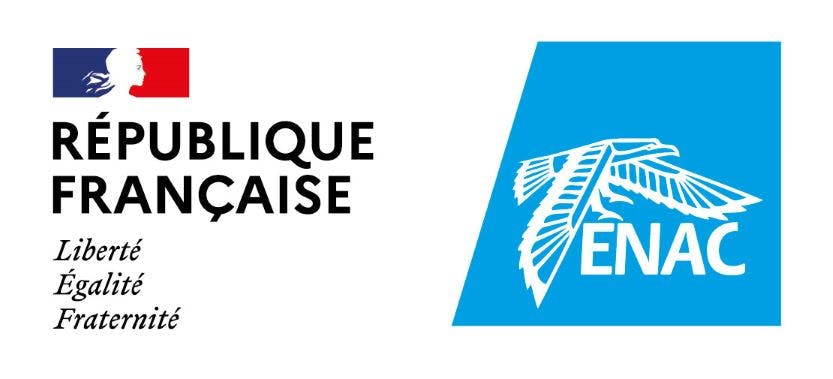Post-doctorant Projets européens
Toulouse, 31400
CDD
01/12/2025- 30/11/2026
Description
L’ENAC, École Nationale de l’Aviation Civile, est la plus importante des Grandes Écoles ou universités aéronautiques en Europe. Elle forme à un spectre large de métiers : des ingénieurs ou des professionnels de haut niveau capables de concevoir et faire évoluer les systèmes aéronautiques et plus largement ceux du transport aérien ainsi que des pilotes de ligne, des contrôleurs aériens ou encore des techniciens aéronautiques.
Ses laboratoires de recherche sont à la pointe de l’innovation et travaillent activement en coopération avec des universités internationales de haut niveau pour un transport aérien toujours plus sûr, efficace et durable.
L’ENAC est un établissement public à caractère scientifique, culturel et professionnel – grand établissement (EPSCP-GE), sous tutelle de la DGAC (Direction Générale de l’Aviation Civile), Direction du Ministère de la Transition Écologique et Solidaire. L’ENAC comprend une direction générale localisée à Toulouse et 8 sites en France.
Pour soutenir sa dynamique en faveur de la promotion de la diversité, l’ENAC facilite l’accueil et l’intégration des travailleurs en situation de handicap.
Missions
In its Flightpath 2050 Europe’s vision for aviation report , European commission describes a resilient transportation system in which passengers and freight are able to transfer between transport modes to reach their final destination smoothly, predictably and on-time. The passenger experience will be a paramount and the evaluation of the transportation system should slowly shift from a flight-centric to a passenger-centric perspective. Indeed, flights delays do not reflect the actual delay experienced by passengers which could be significantly higher than the average flight delay . Moreover, connecting passengers are more likely to be delayed than local passengers. Thus, reliable transfers are critical to ensure passengers, who value to arrive on-time, a seamless door-to-door trip. These transfers link the different transportation networks. While operating independently, these systems are interacting with one another through the flow of passengers and a disruptive event on one of these networks spreads on the whole transportation network. Passengers, who plan their trip according to the schedules supplied by transportation stakeholders, risk missing their connections and a missed transfer can have a deep impact on the remaining journey. An analysis of these connections is relevant to ensure passengers a robust and seamless trip, even in the case of disruptive events. The reliability of the actual transfers and potential benefits of an optimized global schedule will be analyzed through the use of graph theory, stochastic optimization algorithms or traffic assignment techniques. Delay propagation through multimodal graphs will also be explored. The case study of Île-de-France region will be exploited by the use of SNCF, RATP, Roissy-CDG and Orly airports data.
The first difficulty lies in collecting real data in order to build a representative state of the Ile-de-France transportation system. Then, the main challenge of this research is to improve passengers’ experience while not altering transportation stakeholders’ operations. A global schedule should offer benefits to
the various actors and their different constraints must be taken into account.
Profil
Doctorat en optimisation mathématique
Bonnes connaissances en programmation en java
